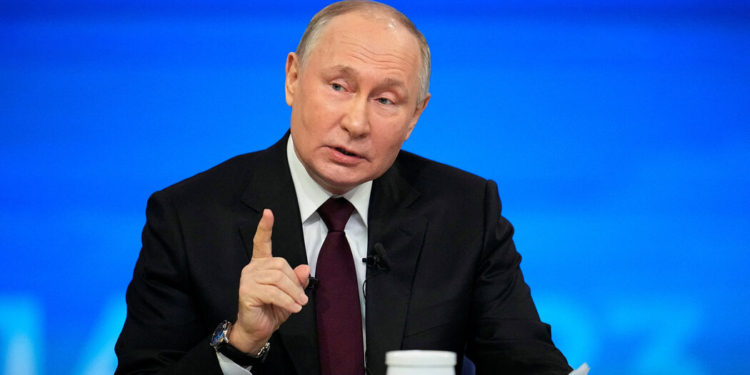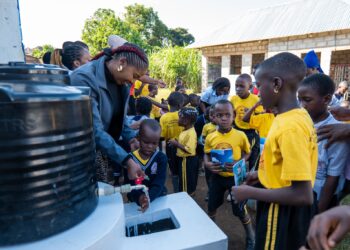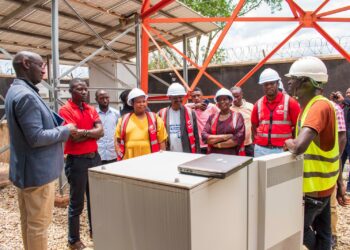President Vladimir V. Putin on Thursday cast himself as a wartime leader in full control of his invasion and his nation, his confidence on display in a stage-managed, four-hour news conference that underscored the Russian leader’s apparent determination to outlast Ukraine and the West.
Mr. Putin said his vaguely defined goals of the “demilitarization” and “denazification” of Ukraine had not changed. He reiterated that he was open to peace talks, but offered no hint of a willingness to compromise. And he boasted that Ukraine’s Western backing appeared to be running dry, a sign of how the impasse in Washington over more funding for Ukraine had buoyed the mood in the Kremlin.
“Peace will come when we achieve our goals,” Mr. Putin said. Referring to Western military aid to Ukraine, he added: “They’re getting everything as freebies. But these freebies can run out at some point, and it looks like they’re already starting to run out.”
Mr. Putin spoke from a position of relative strength. Russian forces fended off Ukraine’s counteroffensive this year and are now attacking in several areas along the front line, and military production in Russia is ramping up.
At the same time, Ukraine faces some of the steepest challenges of the war, deadlocked on the battlefield and urgently seeking to shore up Western support. Just this week, President Volodymyr Zelensky of Ukraine came away from Washington empty handed when Republican lawmakers balked at passing a new aid package.
Mr. Putin, who took power in 1999, spoke at a nationally televised event near the Kremlin that featured two staples of his rule: his year-end news conference, at which hundreds of journalists try to get the president’s attention by hollering and holding up signs; and his annual call-in show, in which regular Russians try to get him to intervene to solve local problems.
Last year, Mr. Putin held neither event, a sign that he had little good news to report after the disastrous beginning of his invasion of Ukraine. This year, the Kremlin combined the two, turning Thursday’s spectacle into a head-spinning telecast that alternated between questions from journalists in the hall and carefully selected notes and videos sent in by the public.
For the first time, Mr. Putin commented on Russia’s arrest last March of Evan Gershkovich, a correspondent for The Wall Street Journal who remains in pre-trial detention on espionage charges that he, his employer and the U.S. government have vehemently denied. Analysts have said that Mr. Gershkovich’s best hope of being released is through a prisoner exchange with the United States or another Western country.
“We want to make a deal, but it should be mutually acceptable to both sides,” Mr. Putin told the news conference, referring to Mr. Gershkovich and to Paul Whelan, a former Marine and corporate executive. Mr. Whelan is serving a 16-year sentence on espionage charges that the United States has also called politically motivated.
Mr. Putin spoke just hours after a Moscow court upheld the detention of Mr. Gershkovich with a ruling that will leave the journalist — who already has been held for 260 days — in custody until at least the end of January. The State Department said last week that Russia had rejected a “substantial offer” that would have freed him and Mr. Whelan.
Throughout the news conference, Mr. Putin sought to appear confident and in command. Next spring’s rubber-stamp presidential election, which is expected to grant Mr. Putin another six-year term, went largely unmentioned, suggesting that the president saw no need for even perfunctory campaigning. One journalist from the Russian Far East expressed support for Mr. Putin’s candidacy, telling the Russian leader that “you’re in power as long as I can remember myself.”
Here’s what else you need to know about the topics Mr. Putin addressed.
The War in Ukraine
Mr. Putin again listed “demilitarization” and “denazification” as his goals for Ukraine — the same false justifications that he used to launch the invasion nearly two years ago. But Mr. Putin now finds himself in a position of relative strength — and his responses on Thursday underscored that point.
Asked by one of the news conference’s moderators when the war will end, Mr. Putin said: “If they don’t want to talk, then we are forced to take other measures, including military ones.” He added that he saw no need for another military draft because, he claimed, some 500,000 people had signed up for military service voluntarily. “Why do we need mobilization?” Mr. Putin said. “Today, there’s no need for it.”
The Russian Economy
Mr. Putin has made the resilience of his country’s wartime economy a major talking point in recent speeches. Despite a flurry of international sanctions, Russia’s economy has regained its prewar size and is expected to grow by about 3 percent this year, as a significant increase in military spending stimulates production, while labor shortages force wages to rise.
But record state spending has come at a cost: Inflation has climbed sharply since the spring, and Mr. Putin acknowledged on Thursday that it could reach 8 percent this year. High interest rates are stifling private investment, companies are struggling to find workers and the economy is becoming more dependent on volatile oil revenues.
Underscoring public anxiety about inflation, one person asked the Russian leader what he planned to do about the rapidly rising prices of eggs. Mr. Putin responded with an off-color joke, an apparent attempt to project confidence and ease.
The West
The news conference provided Mr. Putin with foils for one of his favorite themes: presenting his foreign adversaries as hypocritical and decadent.
The outbreak of the war with Hamas has diverted international attention from Ukraine. Amid mounting calls for a cease-fire in Gaza as the death toll from Israel’s bombardment of the enclave climbs, Mr. Putin sought to differentiate between the actions of the Russian and Israeli militaries. It’s a claim he has been leveraging to try to discredit the West and to gain sympathy around the world.
“Look at the special military operation” — his term for the war in Ukraine — “and look at what’s happening in Gaza, and feel the difference,” Mr. Putin said, when asked about Gaza by a journalist. “Nothing of the sort is happening in Ukraine.” (In fact, Russia’s invasion has killed thousands of Ukrainian civilians.)
Mr. Putin sought to counter Western efforts to turn Russia into a global pariah over the war in Ukraine, presenting himself as a champion of socially conservative causes that resonate with many citizens in other parts of the world. “In many cities in Europe and the U.S., not to mention other world regions, a lot of people think that we are doing everything right,” he said, citing Russia’s “defense of our traditional values.”
He also praised Prime Minister Viktor Orban of Hungary, seen as the European Union’s most Putin-friendly leader, and predicted that relations with the United States could someday improve. “As for the United States, we are ready to build relations with them. We believe that the world needs the U.S.,” Mr. Putin said.
The Scene
There were about 600 journalists, including about a dozen Western correspondents, on hand in Gostiny Dvor, a large event space just one block away from Moscow’s Red Square. Mr. Putin also took called-in questions from people across Russia.
In years past, Russians called in and asked Mr. Putin about their pensions or local infrastructure problems. This year, the first 90 minutes of the event featured a wounded soldier, two military bloggers and three video questions from occupied Ukraine, underscoring the Kremlin’s desire to put the war front and center for the general public.
Ivan Nechepurenko and Anatoly Kurmanaev contributed reporting.






Discussion about this post